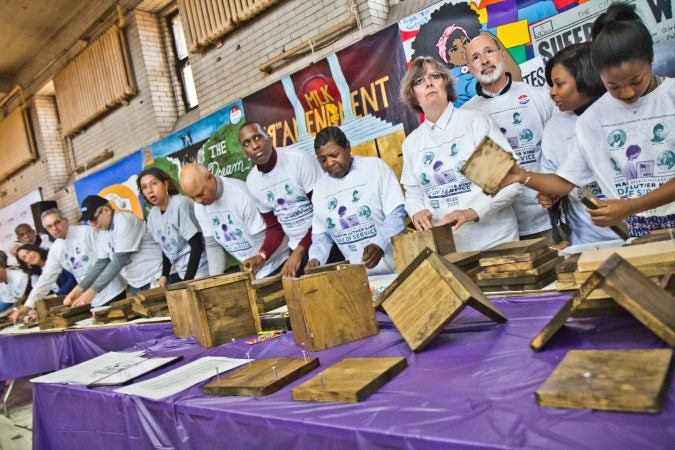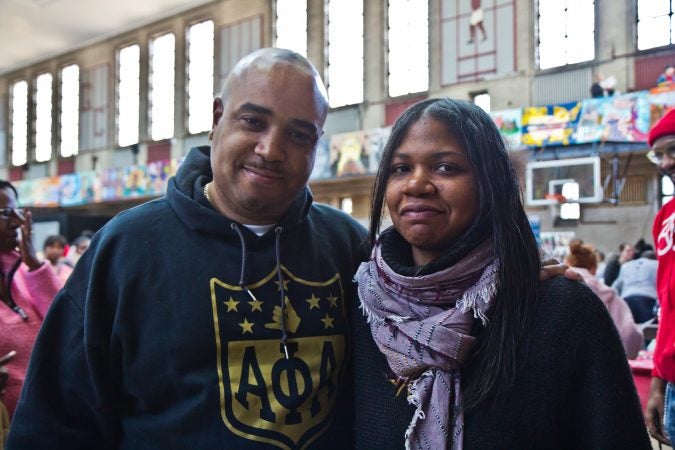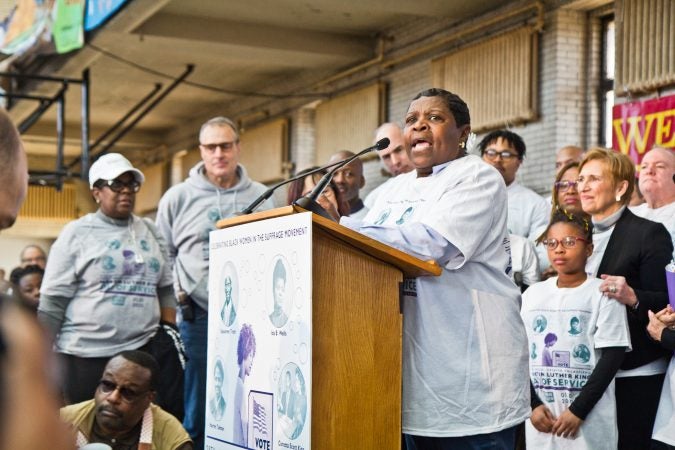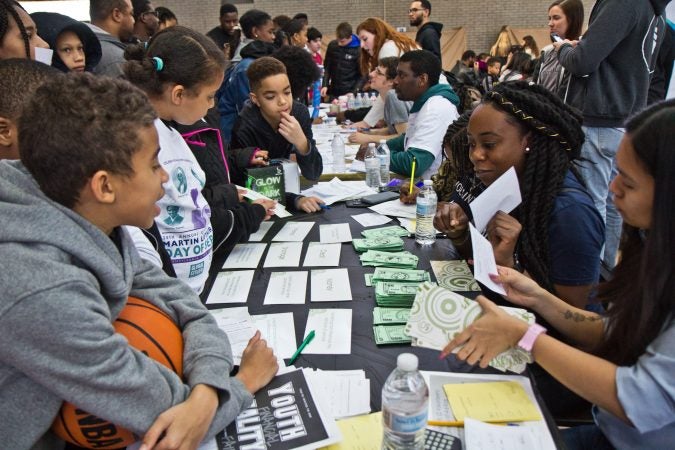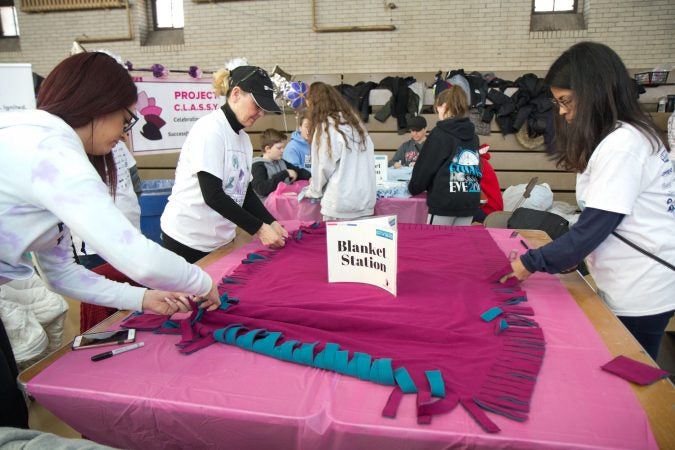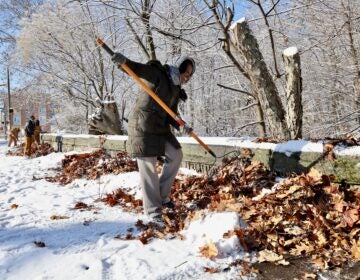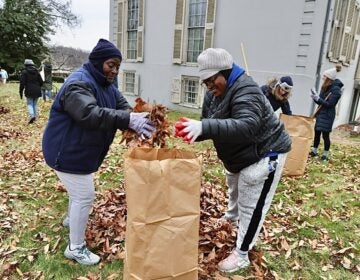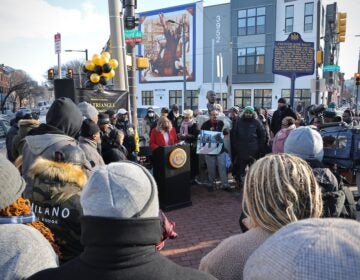Pa. officials swing hammers on MLK Day to drum up 2020 census turnout
Local officials took part in the annual MLK Day of Service at Girard College by making special boxes to help Philly residents commit to taking the 2020 census.
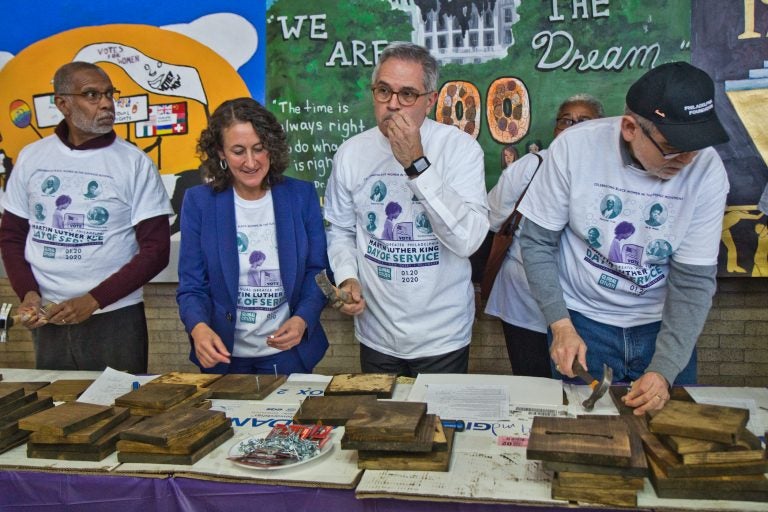
Philadelphia District Attorney Larry Krasner (center right) wields a hammer at the MLK Day of Service at Philadelphia’s Girard College. (Kimberly Paynter/WHYY)
Thousands gathered Monday morning in the armory of Girard College in North Philly for the city’s annual Martin Luther King Day event. Beyond the usual community service efforts, this year’s gathering had a special, once-in-a-decade focus: the 2020 Census count.
And it involved the swinging of hammers and nails.
As part of the largest MLK Day of Service event in the country, local politicians, lawmakers and other officials teamed up to assemble wooden boxes for a “Commit to Count” initiative. Once finished, these small square contraptions will be placed in about 200 libraries, public buildings and nonprofits. They’ll be used to collect commitment cards from Philly residents, a kind of pledge to fill out the big survey this spring.
Much of the political carpentry proved … less than sturdy.
City Controller Rebecca Rhynhart and Pennsylvania Attorney General Josh Shapiro teamed up on an apparatus that could be classified as a public safety threat. A sharp nailhead jutted out from one side of their box.
“It’s unique — ours is UNIQUE!” Rhynhart said. “Look, it has a little split.”
“It’ll grab people’s attention,” Shapiro said, “and remind them of the importance of filling out the census.”
“It doesn’t have to be perfect, it just has to be —” Rynhart paused and sighed, “good enough.”
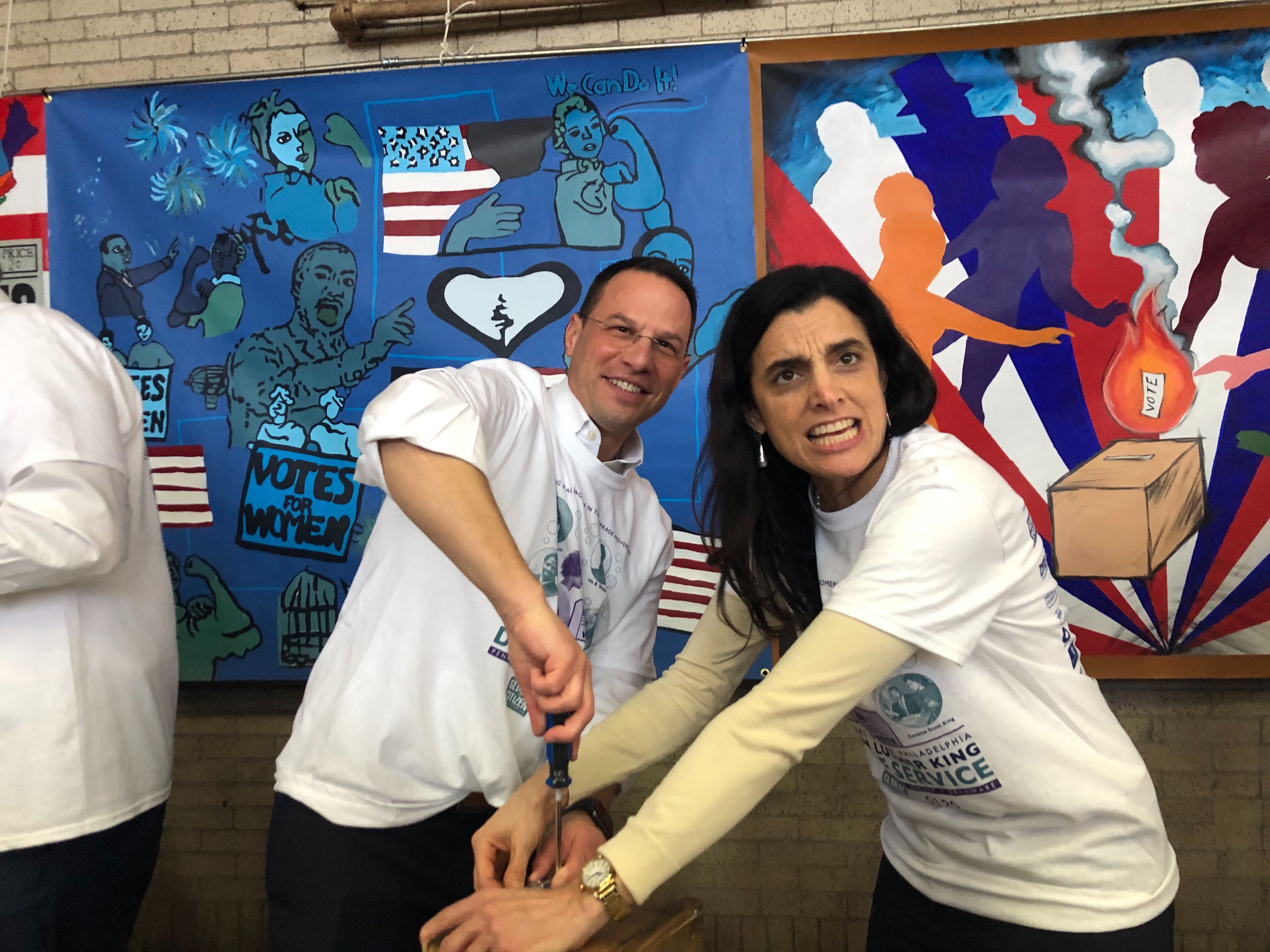
Nearby, Philadelphia School District Superintendent William Hite observed: “Everyone just wants to hammer. No one wants to do the other part.”
U.S. Rep. Dwight Evans and state Sen. Art Haywood chipped away at what they described as a joint effort between the state and federal government — a geometrically challenged affair, by the looks of it.
Down the assembly line stood Philadelphia District Attorney Larry Krasner, struggling with his own misshapen box.
“It’s coming extremely well,” Krasner said. “This is further proof that there’s plenty of work for skilled carpenters in Philadelphia because elected officials … not so good.”
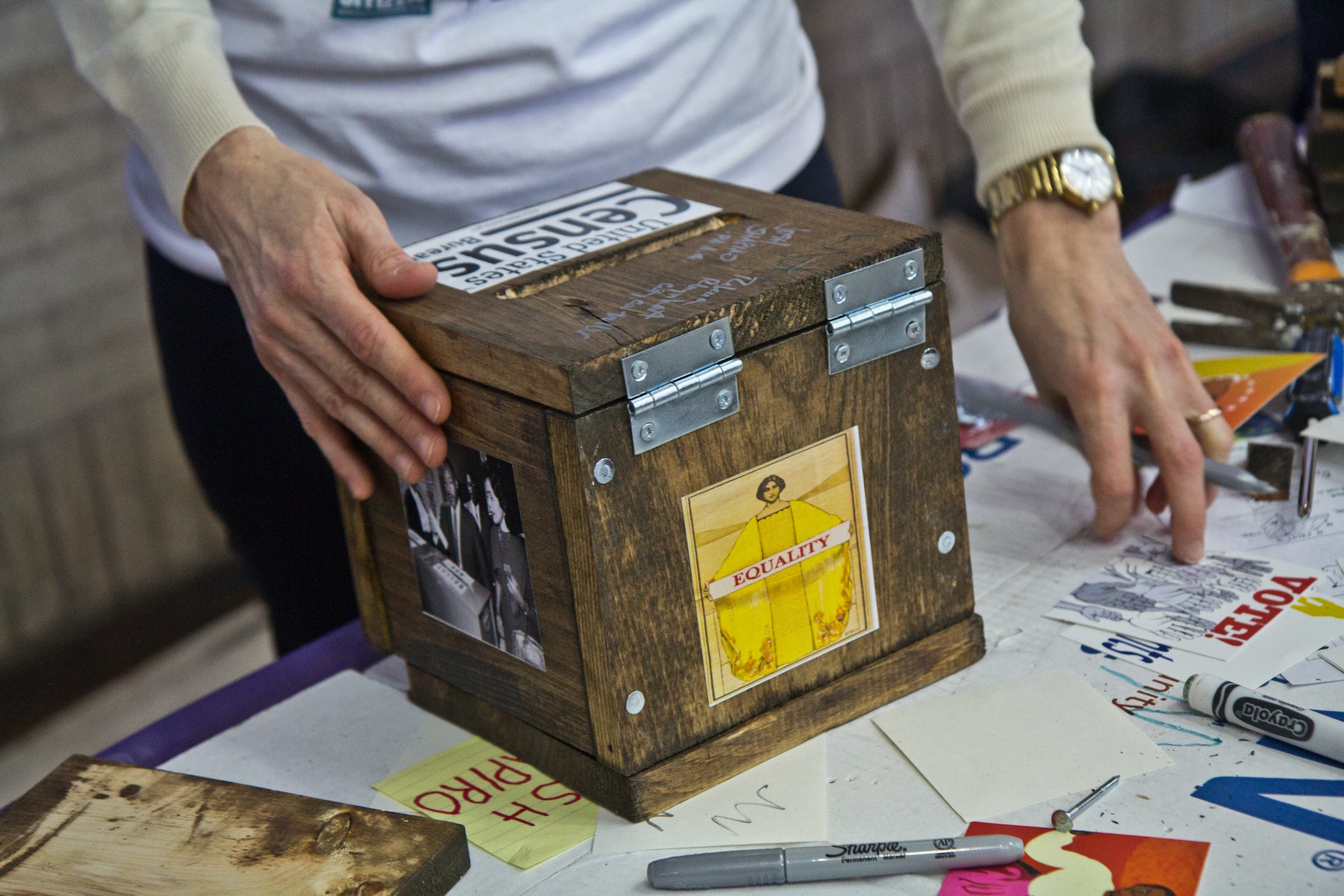
Of course, the boxes are meant to engage city residents about the upcoming census, not teach them lessons on woodworking.
Pennsylvania is spending millions of dollars on outreach efforts this year to boost participation. The U.S. government provides the state with $26.8 billion annually for various federal programs, from social services to infrastructure improvements. That’s about $2,000 per Pennsylvanian each year — which means big money is at stake if everyone in the state doesn’t participate.
Each municipality has to do its part to increase turnout. Fernando Armstrong, the regional director of the U.S. Census Bureau, says each person who goes uncounted in Philadelphia means a loss of federal funds for the city.
“We have millions and millions of dollars that come back to the community and we can only get them if we have a good census in 2020,” Armstrong said. “We are encouraging everyone, absolutely everyone, to take this moment of pride and be on the census.”
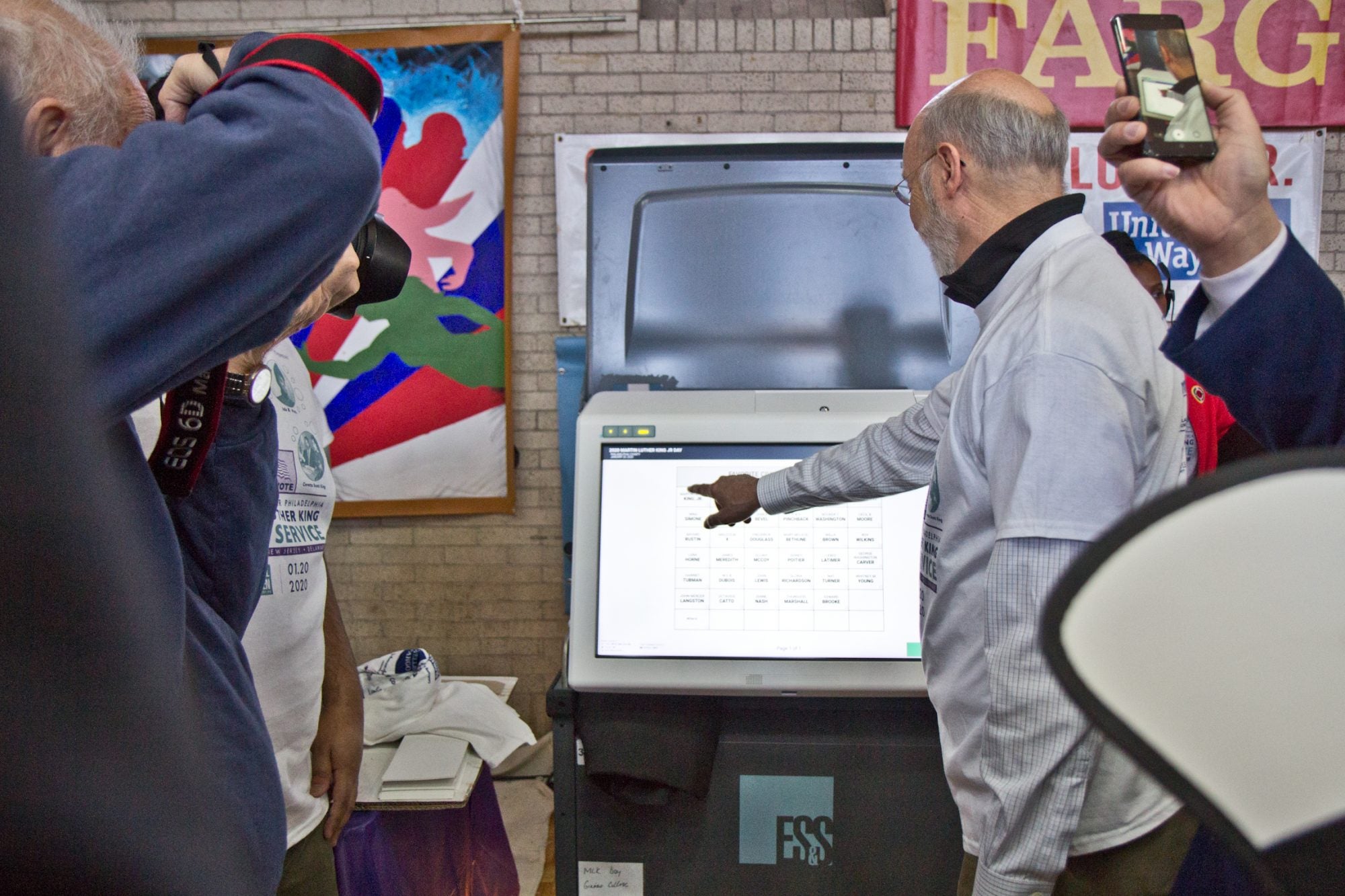
Ahead of the count, the city is doing extra outreach in areas that saw the lowest participation rates during the last census in 2010. At the MLK event, attendees sent personalized letters to residents in some of the city’s lowest turnout tracts, and encouraged them to take part in the count this year.
Stephanie Reid, who heads up Philadelphia’s office of census outreach, said few people realize that the 10-year survey is the basis for political power sharing in the United States. It impacts where electoral boundaries will be drawn in the future. It helps determine how much representation any given area will have — and not just in Washington, D.C.
“People talk about the federal level in Congress, but it’s also our state representation and down to our City Council lines,” Reid said.
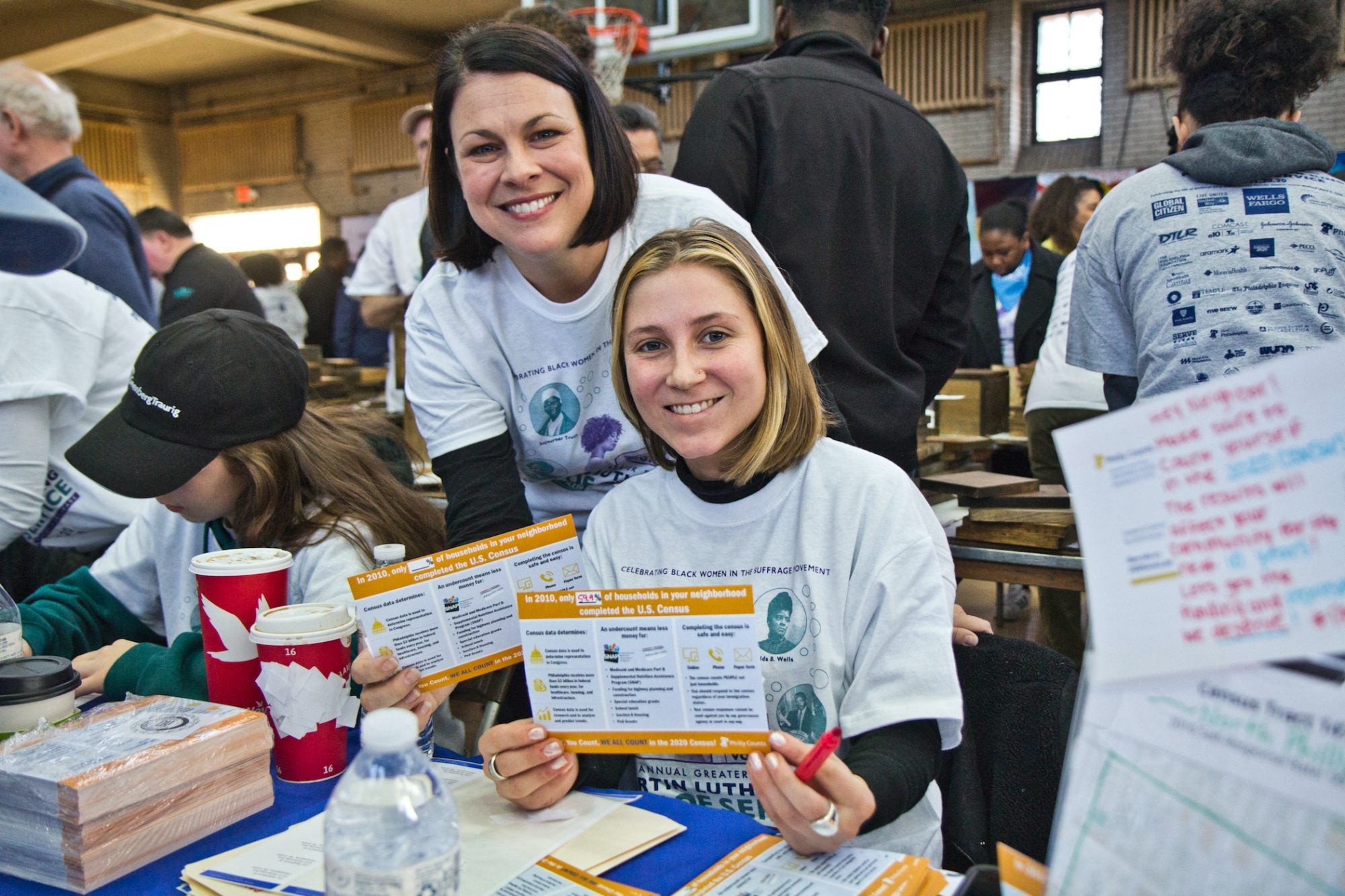
State Rep. Malcolm Kenyatta, whose district includes parts of North Philly, said the census is, at its heart, about a message preached by Dr. Martin Luther King Jr: making everyone seen, especially those from marginalized communities.
“In general, what Dr. King understood is that in America poor and working class people are consistently ignored,” Kenyatta said.
The “Commit to Count” card boxes will be finished, freed of errant nails and decorated with colorful designs before being set out around the city. Filling out a card only takes a minute of your time, and you’ll receive a personalized reminder to complete the survey before Census Day on April 1. (Most of the country will begin the census, which just started in rural Alaska, by mid-March.)
Armstrong, the federal census official, emphasized that the 2020 survey will be widely conducted online, as well as the traditional phone and paper surveys.
Said Armstrong: “We are giving more options to the public than ever before.”
WHYY is your source for fact-based, in-depth journalism and information. As a nonprofit organization, we rely on financial support from readers like you. Please give today.



